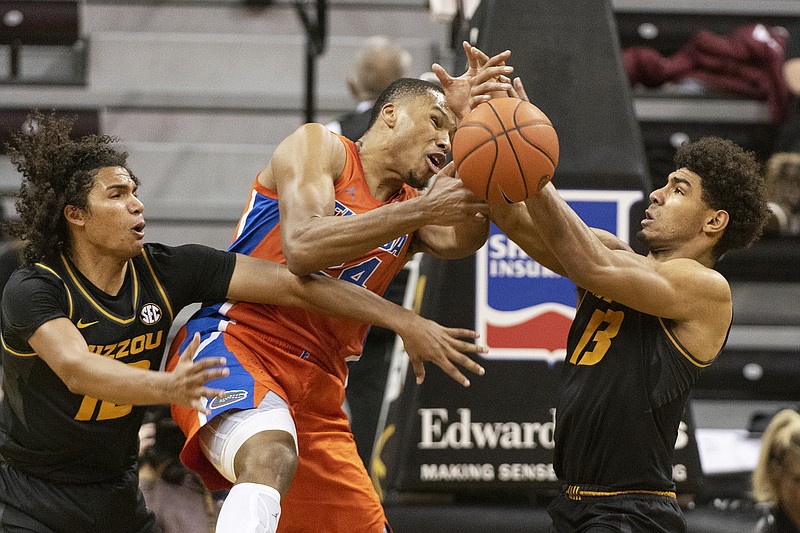When the college football season began in early September, the U.S. was still dealing with the effects of the coronavirus pandemic.
Twelve weeks into the season, and the week before college basketball games are scheduled to begin, things are far, far worse. At the beginning of September, this country was averaging 30,000 new cases per day, down from what had been the peak of 75,000 new cases in late July, and daily deaths were also declining. In the last week, our country has averaged more than 150,000 new cases, total hospitalizations have peaked and continue to rise, and daily deaths again near 2,000.
College athletics programs had success early on in monitoring and containing cases, and the initial fear was college athletes would spark spread in their communities. It's clear the opposite is true, uncontrolled community spread is now affecting college sports, and the margins are incredibly thin.
Missouri had to work with the SEC office in Birmingham so the first-half suspensions of two players for fighting against Florida almost a month ago would count as served against South Carolina on Saturday, despite neither player being available for the game, and deferred the suspension of the third player to another game so he could suit up for the entire game.
Missouri was without 11 players and defensive coordinator Ryan Walters due to contact tracing, and traveled with 56 scholarship players to Columbia, S.C., though three injured starters were there in an emergency capacity. Both the Tigers and Mississippi State kicked off on the road Saturday with fewer than the SEC-recommended 53 scholarship players, and 18 of this weekend's games were canceled or postponed.
Elsewhere in college football, Clemson traveled to play at Florida State before getting its test results back Friday, and found out after arriving it had traveled to Tallahassee with a player who had tested positive. Concerned about the potential of an outbreak, the Seminoles were uncomfortable with playing and the two programs' medical personnel could not come to an agreement on what to do about the game, so it was postponed.
Temple's game Saturday against East Carolina was delayed a few hours after a Temple player's girlfriend tested positive, according to Brett McMurphy. The player then also tested positive when rapid tests were administered, but the game kicked off 50 minutes after the scheduled start time.
The Owls lost 28-3, and head coach Rod Carey said, for the fourth straight week, he felt his team should not have played because of how depleted they were due to COVID issues.
"It's obviously not in my control. Honestly, I didn't think we were going to play and then I got told we were going to play," Carey said, according to OwlScoop.com. "We had five guys, an hour before the game, go into COVID protocol. I didn't know what to expect, to be honest with you."
I still think there's a path forward for high school sports, and there are so many good stories in college football this season it would be a shame not to finish it out.
But I don't think anyone has taken a step back to ask whether starting the college basketball season, at this juncture, with these current COVID numbers, is a good idea. With no bubble, I don't think it is. I hope I'm wrong.

